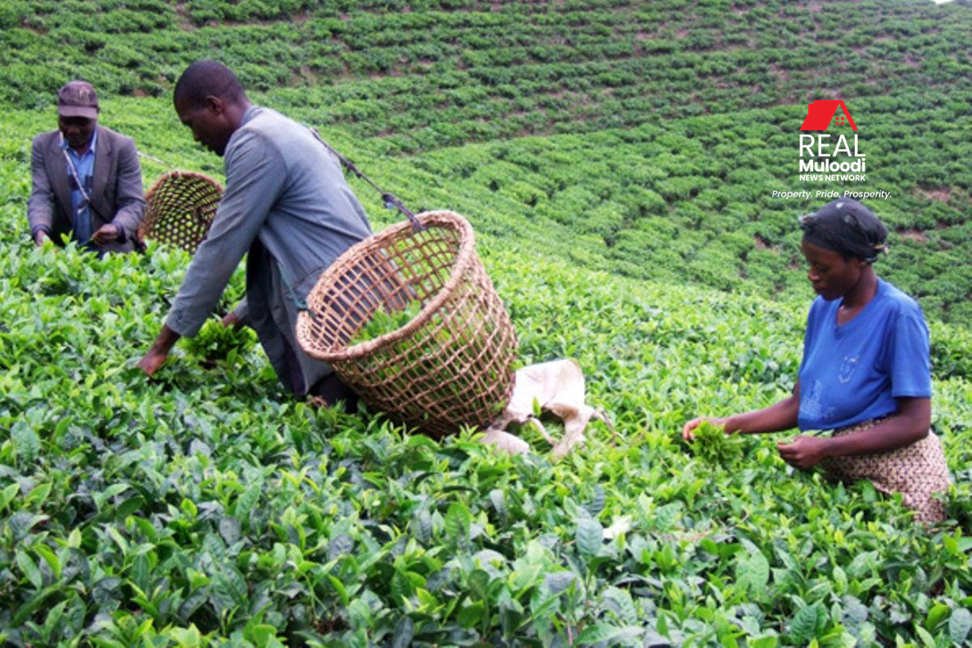UGANDA, Mukono | Real Muloodi News | Bushenyi Women in the tea-growing sector are calling on the government to address gender-based discrimination in access to land.
During the launch of the Women’s Chapter in Tea Uganda in Bushenyi, women noted that gender stereotypes and cultural practices prevent women from fully participating in the socio-economic transformation of the country.
The Women’s Chapter in Tea Uganda represents women from six tea-growing regions across the country, including West Nile, Bunyoro, Tooro, Kigezi, Central, and Ankole.
The Role of Land in Production
Women farmers stated that land is a critical factor in production, but gender-based discrimination limits their ability to access and control land.
Ms Julian Nyabuhara, a tea farmer from Bushenyi and the interim chairperson for Women’s Chapter Tea Uganda, noted the need to embrace equity in agriculture to foster growth.
She explained that women are at the mercy of their husbands in the agriculture sector and cannot produce on their own, even if they have access to land.
“Land is the main factor in production but you find women in agriculture are at the mercy of their husbands. You cannot produce on your own even when you find a chance of accessing land. We see women handing over proceeds to their husbands for management,” Ms Catherine Katusabe, a tea farmer from Kyenjojo District and a woman representative at Uganda Tea Association (UTA), said.
She believes that there is a need for intensive sensitisation to reduce cultural and legal barriers that hinder women from accessing land.
Access to Financial Services Remains a Challenge
According to Ms Macklean Mutungi, a tea farmer from Mitooma, gender stereotypes in leadership limit women’s potential to fully participate in development.
She said that women are not well-represented on boards and management in the tea sector.
“Why can’t we have equal representation on boards and management in the tea sector. I am the only woman in the Igara Tea Factory. The same with many others, we come to these boards as if they are sympathising with us. When they are going for business, it’s only men,” she said.
She stated that inclusion is key in improving tea quality and fetching better prices on the regional market, growing the tea-cottage industry, afforestation, and access to finance through savings to widen their capital base and push towards a national tea policy.
“Access to financial services remains a challenge to the tea sector. When you go to financial institutions, they ask you for security, guarantors …,” Ms Catherine Katusabe said.
The Role of Women in Social-Economic Transformation
The Women’s Chapter in Tea Uganda aims to play an active role in transforming the tea sector. The group believes that inclusion is necessary to improve tea quality and expand the sector, increase afforestation, and access finance through savings to expand their capital base and advocate for a national tea policy.
The chairperson of Women in Tea from Zombo, Ms Jane Evelyne Othora, said that a cottage industry sector drive would ensure quality and bring more women into the sector.
Empowering Women for Economic Growth
Bushenyi District chairperson Jaffar Basajabalaba believes that women are better placed to spearhead socio-economic transformation if empowered.
He cited the Uganda Women Entrepreneurship Programme (UWEP) as an example of a successful government initiative that empowers women economically.
“If you look at the programmes the government has come up with to eradicate poverty, the Uganda Women Entrepreneurship Programme (UWEP) has performed, its visibility on the ground, and recovery of the funds is good compared to other programmes involving men,” he said.
He added that supporting women, especially in access to financing and land, is crucial.
READ MORE LIKE THIS:
International Women’s Day: The Struggle for Women’s Land Rights
Mukene Women Traders Constructing UGX4.6 Billion Commercial Building



